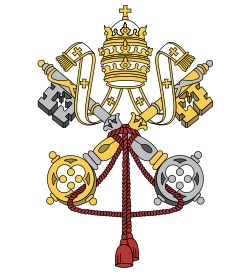Pope Leo XIV sends a video message to Italy’s 7th National Conference on Addictions, and proposes a path to concretely combat the phenomenon of addiction and the tendency of young people to “withdraw into themselves.”
“We must commit ourselves, in a concerted way, to a work of prevention.”
Pope Leo XIV made this invitation in a video message, released on Friday, to Italy’s Seventh National Conference on Addictions taking place in Rome.
In the message, the Pope acknowledged that, even if addictions such as drugs and alcohol continue to be the most prevalent, new forms of addiction have appeared.
“The growing use of the internet, computers, and smartphones is associated not only with clear benefits,” he said, “but also with excessive use, which often results in addictions with negative consequences for health.”
The Pope lamented that these are often “connected with compulsive gambling and betting, with pornography,” and with “the almost constant presence on the platforms of the digital world.”
In these cases, he said, “the object of addiction thus becomes an obsession, conditioning behavior and daily existence.”
Symptoms of mental or inner distress
These phenomena, the Pope reflected, are often “the symptom of a mental or inner distress of the individual and of a social decline in values and positive points of reference,” particularly among adolescents and young people, who “search for meaning in existence,” and “of choices that concern the future.”
“The increase of the market and of the consumption of drugs, the recourse to easy earnings through slot machines, the dependence on the internet—which also includes harmful content—show that we live in a world without hope, where vigorous human and spiritual proposals are lacking,” he said.
Consequently, Pope Leo warned that many young people “think that all behaviors are equivalent,” since they often are unable to distinguish properly, thereby making the efforts of parents and of the various educational agencies, such as schools, parishes, and youth centers, all the more precious.
These institutions, he said, “seek to instill and inspire in the younger generations spiritual and moral values, so that they may behave as responsible persons.”
Deep thirst for life
The Pope went on to say that adolescents and young people “need to form their conscience, to develop their inner life, and to establish positive relationships with their peers and a constructive dialogue with adults, in order to become the free and responsible architects of their own existence.”
Fearing the future and commitment in adult life, Pope Leo noted, makes young people especially “fragile” and feeds into their “tendency to withdraw into themselves.”
“The institutions of the State, volunteer associations, the Church, and society as a whole,” Pope Leo insisted, “are called to perceive in these young people a plea for help and a deep thirst for life, in order to offer an attentive and supportive presence that invites them to intellectual and moral effort, and that helps them to forge their will.”
Therefore, he exhorted, “it is a matter of committing ourselves ever more, and in a concerted way, to a work of prevention,” which “is translated into the intervention of the community as a whole.”
Within “the framework of a policy for the prevention of youth distress,” the Pope called for increasing “the self-esteem of the new generations, so as to counter the sense of insecurity and emotional instability fostered both by social pressures and by the very nature of the adolescent phase.”
Concrete proposals for a new culture of solidarity
The path for preventing addictions, the Pope said, involves employment opportunities, education, sports, healthy living, and the spiritual dimension of existence.
Pope Leo XIV concluded his video message by encouraging all those taking part in the conference to outline concrete proposals aimed at promoting “a culture of solidarity and subsidiarity.”
This health culture, he said, must stand “in opposition to selfishness and to utilitarian and economic logics,” and must rather be “directed toward others, in listening, in a journey of encounter and relationship with one’s neighbor, especially when he or she is most vulnerable and fragile.”


